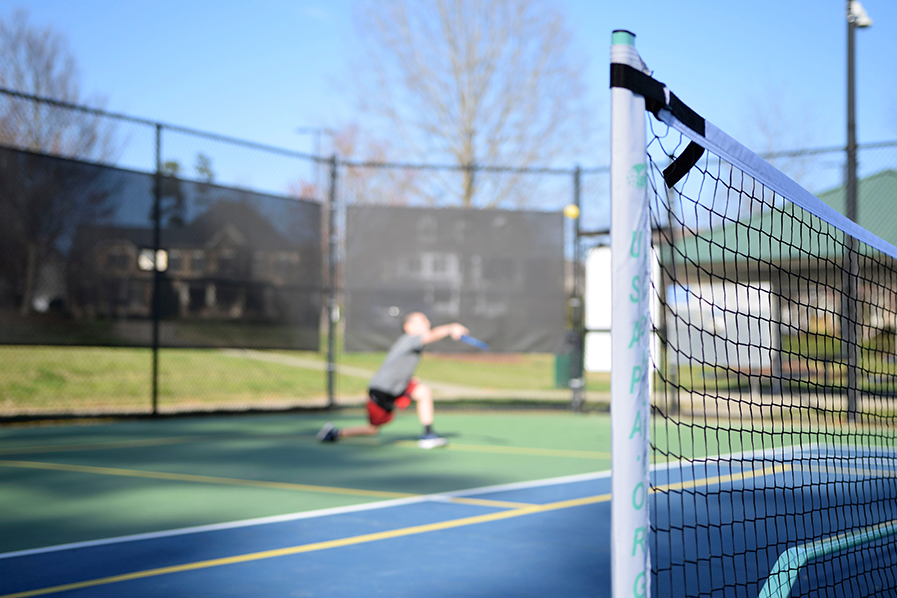 In recent years, a growing number of those nearing or already retired have discovered the joys and benefits of pickleball. This engaging and inclusive sport has taken communities by storm, providing a fun and effective way for older adults to stay active, socialize, and maintain their overall well-being. In this article, we’ll explore why pickleball is beneficial for those nearing or already retired and why it has become the sport of choice for many as they grow older.
In recent years, a growing number of those nearing or already retired have discovered the joys and benefits of pickleball. This engaging and inclusive sport has taken communities by storm, providing a fun and effective way for older adults to stay active, socialize, and maintain their overall well-being. In this article, we’ll explore why pickleball is beneficial for those nearing or already retired and why it has become the sport of choice for many as they grow older.
- Low Impact, High Rewards
One of the key reasons why pickleball is ideal for those nearing or already retired is its low-impact nature. This racquet sport, which combines elements of tennis, badminton, and ping-pong, is played on a smaller court, reducing the amount of running and strain on joints. The use of a whiffle ball instead of a tennis ball minimizes the risk of injuries while still providing an excellent cardiovascular workout. This makes pickleball accessible to individuals of all fitness levels, including those with joint issues or mobility concerns.
- Social Engagement
Pickleball is more than just a sport; it’s a social activity that fosters camaraderie and friendship among those nearing or already retired. The sport is typically played in doubles or mixed doubles, encouraging interaction and teamwork. Players often find themselves forming close-knit communities at pickleball courts, where they can share stories, experiences, and laughter. This sense of belonging and connection is invaluable for mental and emotional well-being.
- Mental Stimulation
Pickleball isn’t just physically engaging; it’s mentally stimulating as well. Players must strategize, anticipate their opponents’ moves, and make quick decisions during each rally. This mental agility can help keep players’ minds sharp and improve cognitive function. Studies have shown that engaging in mentally stimulating activities like pickleball can reduce the risk of age-related cognitive decline and enhance memory and problem-solving skills.
- Improved Balance and Coordination
Maintaining balance and coordination becomes increasingly important as we age. Pickleball requires players to move swiftly, change direction, and react to fast-moving balls. This constant motion helps players enhance their balance and coordination, reducing the risk of falls and injuries. Better balance also translates to improved confidence and independence in daily life activities.
- Physical Fitness and Weight Management
Staying physically active is crucial for overall health. Regular pickleball play helps players manage their weight, lower their blood pressure, and reduce the risk of chronic conditions like heart disease, diabetes, and osteoporosis. The sport also promotes muscular strength and endurance, which are essential for maintaining mobility and independence in later life.
- Easily Adaptable
Pickleball is incredibly adaptable to individual skill levels and physical capabilities. Courts can be modified for those with mobility challenges, and players can adjust their playing style to accommodate their abilities. This flexibility makes it an inclusive sport that anyone can enjoy, regardless of their age or physical condition.
- Stress Reduction
Engaging in physical activity, especially in a social setting like pickleball, can significantly reduce stress and anxiety levels. The release of endorphins during play promotes a sense of well-being and relaxation. Additionally, the camaraderie and support of fellow players can provide a valuable emotional outlet, helping players cope with life’s stressors.























 Megan Jones joined the ILG Financial team in 2020 as marketing director. Megan and her husband live in Fredericksburg, VA with their German Short Haired Pointer, Gus. Megan is a graduate of Longwood University and holds a degree in communications. Megan is the oldest of Dave Lopez’s three children and not only enjoys working alongside her father, but also with her cousin, Chase, who joined the ILG Financial team in 2020 as an advisor. Megan is also a fully licensed Life, Health, and Annuity agent. When not at work, Megan enjoys sitting on the back porch with family and friends enjoying food and music.
Megan Jones joined the ILG Financial team in 2020 as marketing director. Megan and her husband live in Fredericksburg, VA with their German Short Haired Pointer, Gus. Megan is a graduate of Longwood University and holds a degree in communications. Megan is the oldest of Dave Lopez’s three children and not only enjoys working alongside her father, but also with her cousin, Chase, who joined the ILG Financial team in 2020 as an advisor. Megan is also a fully licensed Life, Health, and Annuity agent. When not at work, Megan enjoys sitting on the back porch with family and friends enjoying food and music. Chase Lopez joined the ILG Financial team in 2020 as an advisor. Chase is a 2016 James Madison University graduate with a degree in management. Chase has been trained under the tutelage of Dave Lopez, who is not only the founder and managing member of ILG Financial, but also is Chase’s uncle and godfather. He also enjoys working alongside his cousin, Megan, who is Dave’s daughter.
Chase Lopez joined the ILG Financial team in 2020 as an advisor. Chase is a 2016 James Madison University graduate with a degree in management. Chase has been trained under the tutelage of Dave Lopez, who is not only the founder and managing member of ILG Financial, but also is Chase’s uncle and godfather. He also enjoys working alongside his cousin, Megan, who is Dave’s daughter. Amy Anderson joined the ILG Financial team in 2023 as the client relations coordinator. Her responsibilities include scheduling of appointments, annual check-up notifications, and annuity and required minimum distribution assistance. She is a graduate of Harding University with a degree in Computer Information Systems. Amy and her husband have two children and she enjoys reading, crocheting, music and spending time with her family.
Amy Anderson joined the ILG Financial team in 2023 as the client relations coordinator. Her responsibilities include scheduling of appointments, annual check-up notifications, and annuity and required minimum distribution assistance. She is a graduate of Harding University with a degree in Computer Information Systems. Amy and her husband have two children and she enjoys reading, crocheting, music and spending time with her family. Jessica Carson joined the ILG Financial team in 2018 as an agent. Jessica and her husband have four children, two dogs, 3 barn cats, 5 chickens, and three parakeets. She indeed loves her children and pets! When not at work, Jessica enjoys playing the piano and cello as well as traveling and spending time outside with her family, hiking, fishing, and boating.
Jessica Carson joined the ILG Financial team in 2018 as an agent. Jessica and her husband have four children, two dogs, 3 barn cats, 5 chickens, and three parakeets. She indeed loves her children and pets! When not at work, Jessica enjoys playing the piano and cello as well as traveling and spending time outside with her family, hiking, fishing, and boating. Terri Center joined the ILG Financial team in 2019 as client services manager. She handles client records, application processing, and gathering information to provide a professional and friendly experience with all of our clients. Terri is a graduate of Oakland University. She is married and has two children. She enjoys hiking, family time, and puzzle challenging video games. She also likes to share her creativity in her canvas paintings and sewing projects.
Terri Center joined the ILG Financial team in 2019 as client services manager. She handles client records, application processing, and gathering information to provide a professional and friendly experience with all of our clients. Terri is a graduate of Oakland University. She is married and has two children. She enjoys hiking, family time, and puzzle challenging video games. She also likes to share her creativity in her canvas paintings and sewing projects.